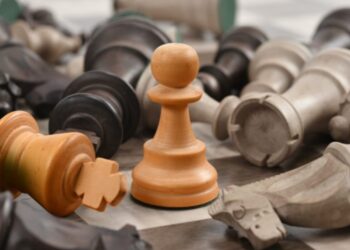Gas related accidents are one of the leading causes of injuries and deaths at home. A gas cylinder can explode if it heats up and the pressure builds at a rate that overcomes the pressure relief valve. The typical cause for gas cylinder explosions is gas leak from the cylinder, connection, regulator or fittings. Gas from the leak accumulates within a confined, mixes with air at proportions within the limits of flammability. Add a spark or ignition source to this and you have a gas cylinder blast or explosion.
The leak can be from the gas appliance or other source not involving the cylinder. If there is a problem with an appliance or fitting, within the house, leaking gas can accumulate, causing a potential gas leak explosion. This neglect results in hoses perishing, O-rings getting damaged or lost, old regulators leaking or gas knob valves starting to leak. Gas leaks from poor connections, faulty gas regulators and damaged hoses are the most common causes.
A gas leak explosion could also be caused by various explosive gases, including; natural gas (methane), LPG (propane or butane), CNG (methane) or a welding gas, like acetylene. A high percentage of gas cylinder explosions in most countries is as a result of substandard gas cylinders, because they do not meet the manufacturing and safety requirements. The typical problem is an insufficient regulatory mechanism and/or a lack of enforcement.
How to safely handle, use and store gas cylinders
It’s mostly negligent and careless handling that leads to cooking gas cylinder explosion. Embracing these effective safety measures will help in avoiding such accidents.
- LPG cylinders should be bought from authorized dealers only.
- Always use gas cylinders in a vertical position, unless your cylinder is designed to be used otherwise.
- Securely restrain gas cylinders to keep them from falling over.
- Ensure the pipe or regulator is suitable for the specific cylinder and the pressure being used, before connecting your gas cylinder to a pipe or equipment such as a regulator.
- Do not to drop, roll or drag gas cylinders.
- When not using the gas cylinder, ensure the cylinder valve is closed properly. Where provided, dust caps are also to be replaced.
- Do not store filled gas cylinders for excessive periods of time. Only purchase sufficient quantities of gas to cover your short-term needs.
- Store your gas cylinder in an adequately ventilated building or in a part of the building specifically reserved for that purpose.
- Gas cylinders containing flammable gas should also not be stored in a section of the building used for other purposes.
- Protect gas cylinders from external heat sources as that may seriously affect their mechanical integrity.
- For empty cylinders, ensure the valve remains shut to prevent contaminants getting into the cylinder.
- Note that, shaking a gas cylinder to know the remaining quantity does not cause a gas cylinder explosion.
How to prevent gas leaks
Prevention is better and easier than cure, hence you need to ensure that you take action possible to prevent gas leaks at your home. Here are some tips that you can use to ensure that there is no gas leak in your house.
- Ensure your burner is tightly secured.
- Check your appliances for wear and tear and ensure that they are serviced regularly.
- Inspect on the LPG pipes after every refill before using.
How to detect a gas leak
Gas cannot be seen, but it can be smelt. However, there are other ways where you can detect a gas leak.
- If your flame is orange or yellow instead of blue and leaves soot on your cooking appliances.
- Listen to identify a hissing sound from your gas connection or the banner.
What to do when you detect a gas leak
If you detect or suspect that there is a gas leak in your home. Take the following measures to mitigate the threat.
- Turn off the gas supply to ensure there is no more leak.
- Open all doors windows and any ventilation to ensure fresh air circulation in the house.
- Do not use electric devices such as laptops and phones these things cause a spark which can cause the already leaked gas to ignite.
- Do not smoke, or use any open flames such as a candle because it can cause the leaked gas to explode hence causing a fire.
How to prevent a gas cylinder explosion
Domestic gas cylinder if not well handled can lead to fatal accidents such as explosions. Therefore learning how to prevent gas cylinder explosion is important. The following are safety tips that you can apply when handling gas cylinders.
- Keep the gas knob out of reach for children when not using.
- Make sure that the kitchen or cooking area is well ventilated for a good flow of air in case of a gas leak.
- Educate people around you on gas cylinder safety measures and how to use and handle gas cylinders.
- Remember to keep the regulator knob in off position when not in use.
- Proper handling of electrical appliances.
- Use only approved rubber tubes and regulators.
- Do not store flammable and plastics in the kitchen near the LPG cylinder or cooking area.
- Don’t put the cylinder in hot water bath even if there is some residual LPG left as chances of a gas cylinder explosion are always on the rise when they are exposed to heat and fire.


































































































































































































